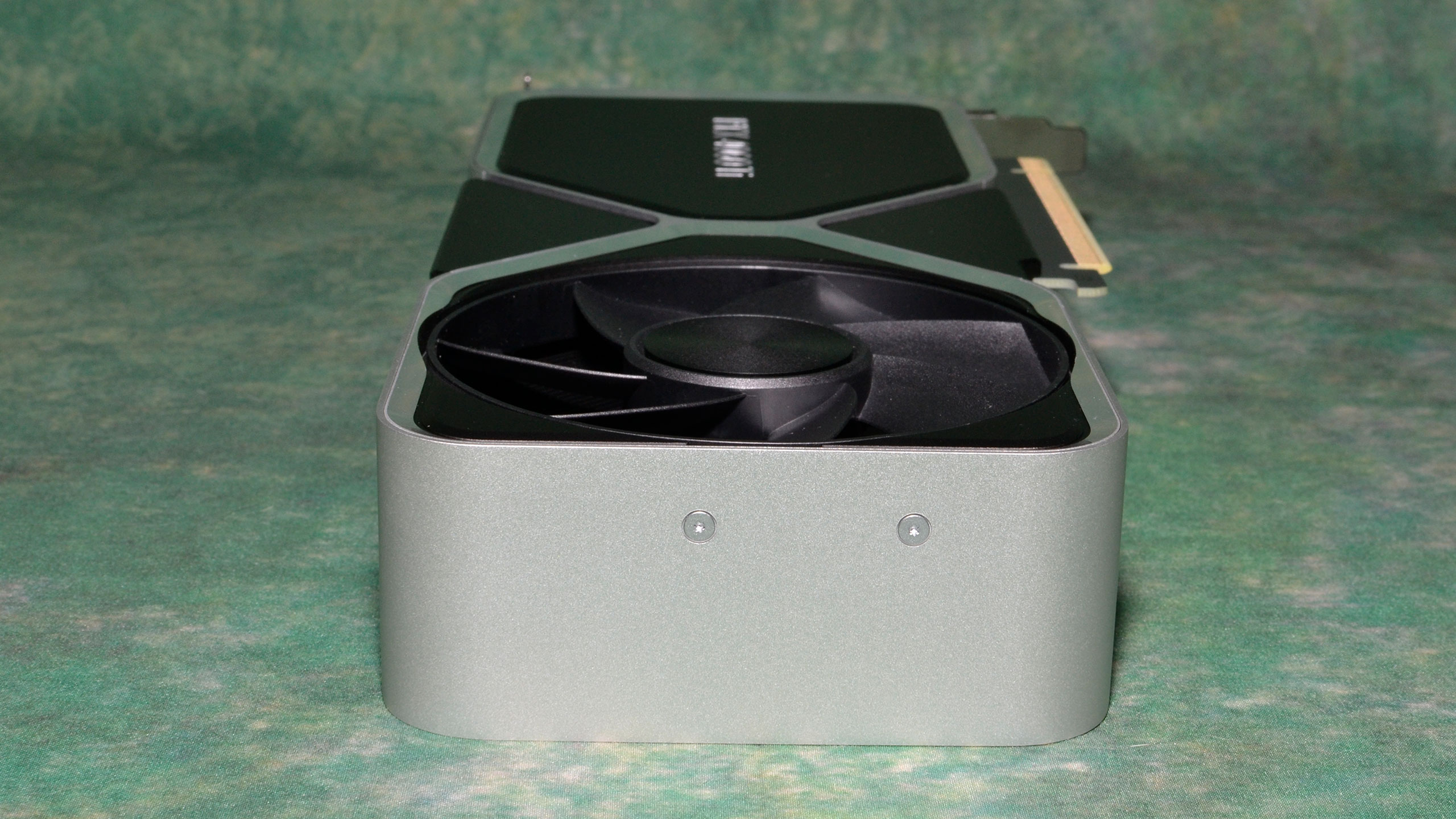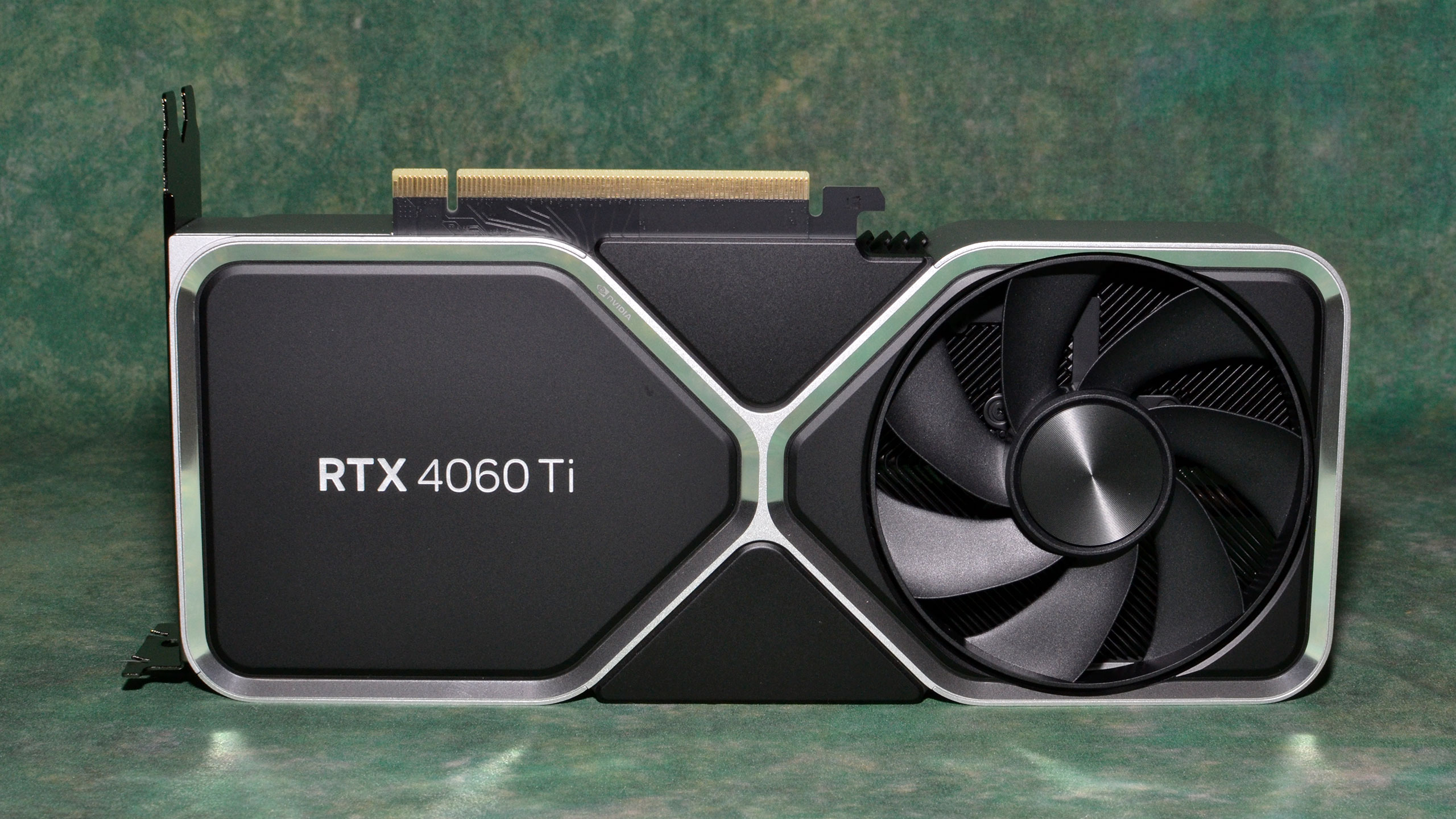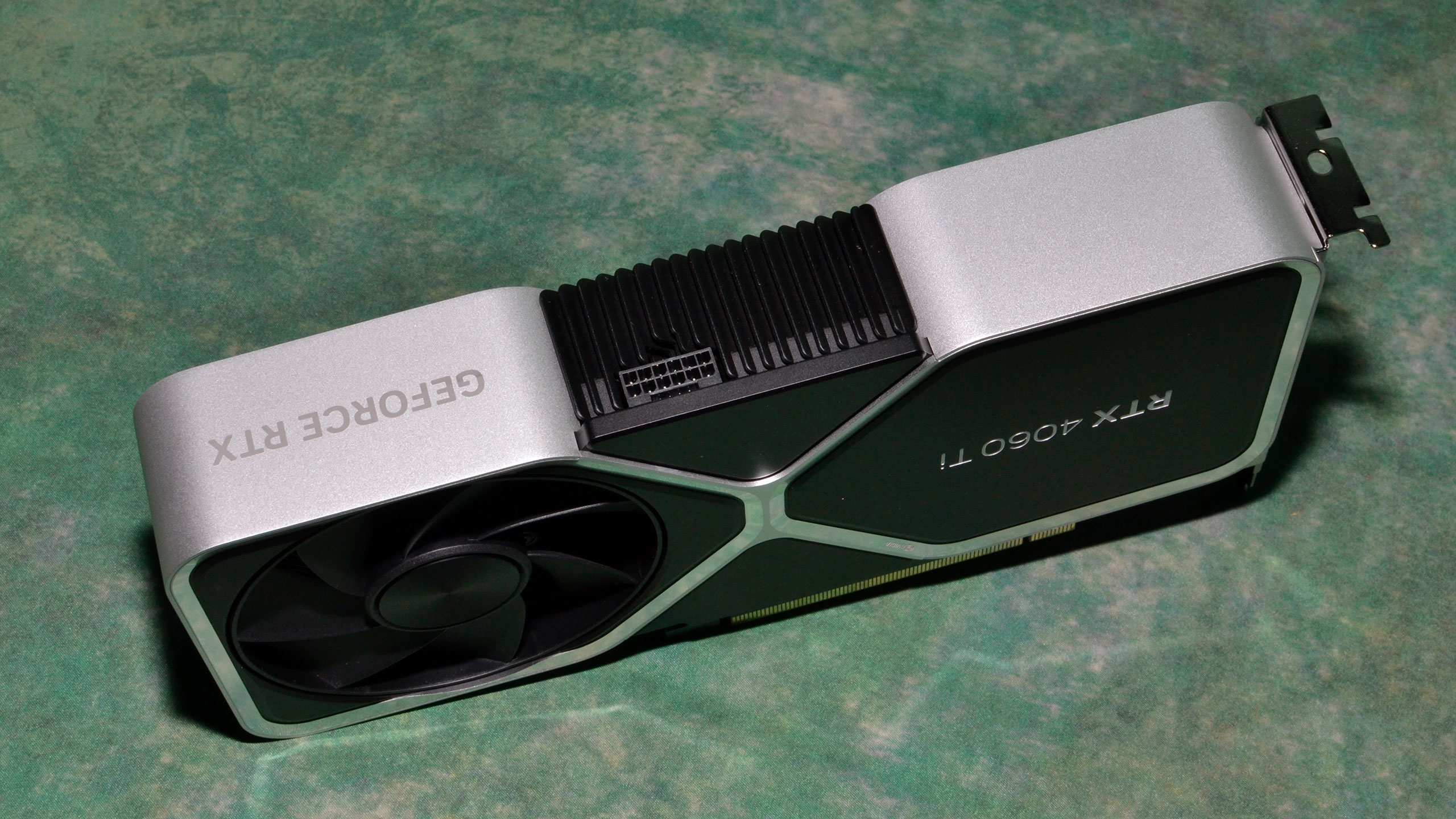Why you can trust Tom's Hardware
Nvidia's RTX 40-series has been controversial for a variety of reasons, and the RTX 4060 Ti will continue that trend. It's not that this is a bad card, as the efficiency shows significant improvements over the previous generation. The price of entry, relative to the RTX 3060 Ti, also remains unchanged. The problem is that Nvidia's trimming of memory channels and capacity is very much felt here, and we can only look forward to similar concerns on the future RTX 4060 and RTX 4050.
The performance ends up being a bit of a mix, with native rendering showing only relatively minor improvements compared to the prior RTX 3060 Ti. There are even some instances where the new card falls behind — specifically, any situation where the 8GB VRAM and reduced bandwidth come into play.
Nvidia seems to be counting on DLSS 3 support as a major selling point for the RTX 40-series yet again. It's not that we actively dislike DLSS 3 and Frame Generation, but there are compromises, and Frame Generation performance charts can be somewhat misleading when it comes to the actual feel of games. Anyone who's highly sensitive to input lag will probably want to leave it toggled off.
Mainstream graphics cards are never the sexiest offerings around. In this case, we've had similar levels of performance from the RTX 3070 and 3070 Ti since late-2020 and mid-2021, respectively. Granted, those were both nearly impossible to find at anything approaching a reasonable price until mid-2022, so getting a replacement that's hopefully readily available will certainly attract some buyers. Just don't go upgrading from an RTX 3060 Ti, or you'll be very disappointed in the lack of tangible performance improvements.

As we mentioned earlier, we'd feel a lot better about the RTX 4060 Ti if it had 12GB of memory and a 192-bit memory interface. Nvidia likely decided to go with a 128-bit bus and 8GB of VRAM around the time the RTX 30-series was shipping, but we still feel it wasn't the ideal choice. At least there will be a 16GB 4060 Ti in July, but the extra $100 puts you that much closer to getting an even better card like the RTX 4070. Or maybe AMD will have a new generation RX 7700/7800-series card priced at $500 or less by then.
Anyone using a graphics card at least two generations old will find a bit more to like about the RTX 4060 Ti. It's not a huge boost in performance over the 3060 Ti, but it does come with some useful new extras, like AV1 encoding support. It's also a more compact card than a 3060 Ti, so it can fit in a smaller case, and it ran cool and quiet in our testing.
It might be the best $400 card on the market right now, but that doesn't make it the best card overall. AMD's RX 6700-class GPUs may not have all the extras that Nvidia offers, but they do have 12GB (or at least 10GB) of memory, and you can practically pick them up for a song. The RX 6700 10GB starts at $269 on Amazon, while the base model RX 6700 XT costs $319 on Newegg. There's also the Arc A750 for $199 to consider. Is the RTX 4060 Ti worth twice the admission price? For some people, yes.
Retail availability of the RTX 4060 Ti is set for May 24, with both custom and reference clocked cards ready to hit the store shelves. AMD is rumored to be shipping the RX 7600, but we'll have to wait to see how that stacks up.
The bottom line is that you could certainly do worse than an RTX 4060 Ti. You could also do a lot better, if by "better" you mean "faster." Its just likely to cost you a whole lot extra to move up to the next faster Nvidia graphics card.
- MORE: Best Graphics Cards
- MORE: GPU Benchmarks and Hierarchy
- MORE: All Graphics Content
Get Tom's Hardware's best news and in-depth reviews, straight to your inbox.
Current page: GeForce RTX 4060 Ti: A Cut Too Far
Prev Page GeForce RTX 4060 Ti: Power, Clocks, Temps, and Noise
Jarred Walton is a senior editor at Tom's Hardware focusing on everything GPU. He has been working as a tech journalist since 2004, writing for AnandTech, Maximum PC, and PC Gamer. From the first S3 Virge '3D decelerators' to today's GPUs, Jarred keeps up with all the latest graphics trends and is the one to ask about game performance.
-
lmcnabney 3.5 stars for what is a fairly negative review.Reply
Who is the target for this product? A console will perform better for the same money and eliminate the cost of the rest of the computer. -
DSzymborski Replylmcnabney said:3.5 stars for what is a fairly negative review.
Who is the target for this product? A console will perform better for the same money and eliminate the cost of the rest of the computer.
Presumably people who want a computer that can do the stuff a console can and still do the other things that a console doesn't do all that well. -
bourgeoisdude Reply
It also costs more :)HKTacticblade said:RX 6800 16GB from previous gen is already better.
Seriously though, I keep waiting for a card around this price point to upgrade to, as I have the 1070 ti, but I keep getting disappointed. I am considering AMD as a protest to what I consider the NVIDIA name tax, but frankly I am skeptical that they will do much better with their 7600 (XT) or 7700 (XT). I play enough older games that I also lean away from Intel. I guess I'm just hanging on to Pascal for a bit longer. -
J_E_D_70 WTH is going on. The $500 2070 Super 8GB from four (!!!) years ago crushes 1080p and is highly competent at 1440p. Two generations later a 4060ti should be equivalent to what... a 2080 or higher? Guess they really have hit a wall.Reply -
dk382 FYI, the professional/content creation portion of the review is for the 4070. Looks like you forgot to replace it with the 4060 Ti's data in the template.Reply -
evdjj3j Reply
I came here to say the same thing.lmcnabney said:3.5 stars for what is a fairly negative review.
Who is the target for this product? A console will perform better for the same money and eliminate the cost of the rest of the computer.
"RTX 4060 Ti comes in just ahead of the RTX 3070 at 1080p, but falls behind the RTX 3060 Ti at 1440p and 4K."
"Being faster than the RTX 3070 is at least something, but the lead is very slim, and the RTX 3060 Ti isn't far behind either. Gen on gen, we're looking at native performance that's only 13% faster with the RTX 4060 Ti."
That's not 3 1/2 starts worthy.
I'm getting the impression that Tom's doesn't want to bite the had that feeds it. -
peachpuff Reply
Maybe it's out of 10 stars? 🤔lmcnabney said:3.5 stars for what is a fairly negative review.
-
bit_user Reply
I also noticed that, but the article text explains it:dk382 said:FYI, the professional/content creation portion of the review is for the 4070. Looks like you forgot to replace it with the 4060 Ti's data in the template.
Note: We're still retesting some of the cards and so the ProViz and AI results aren't quite ready yet. Check back later today... the charts and text below are placeholders from the RTX 4070 launch. -
btmedic04 So more or less 3070 performance for $100 less now, or 3070 performance with double the vram for the same launch price as the 3070 next month. Yeah no thanks. Insane that nvidia thinks they can charge essentially the same price on 3 year old performanceReply

